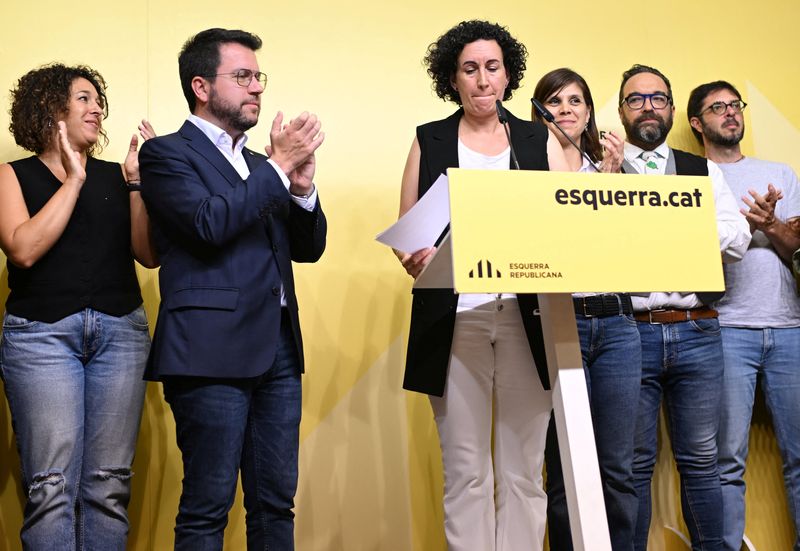BARCELONA (Reuters) – Grassroots members of Catalonia’s separatist ERC party supported on Friday a regional government deal with Spain’s ruling Socialists that could patch up Madrid’s uneasy relations with the region but also impact Spain’s entire fiscal system.
A narrow majority of ERC members voted in favour of the agreement to name Socialist Salvador Illa as new head of the regional government, according to party sources.
The northeastern region, one of Spain’s wealthiest, has been governed by separatists since 2010. The peak of the independence drive came in 2017, when the Catalan government called a referendum to secede from Spain, deemed illegal by courts and resulting in a short-lived declaration of independence.
The nationalist movement’s influence has since ebbed, failing to garner sufficient backing to form a government in May’s regional election, won by the centre-left Socialists without a working majority.
The only way to avoid a repeat election lay through an agreement between the winning party and the left-wing, separatist ERC, to support Illa.
After the ERC’s members’ approval, an investiture vote could be held as soon as next week.
Under a preliminary deal agreed on Monday, Catalonia would become autonomous in collecting and managing taxes that could clash with the Spain-wide fiscal systems where poorer regions receive a portion of the more affluent regions’ revenues and prompt other regions to demand similar privileges.
Such a shift would still have to be approved by a highly- fragmented Spanish parliament.
Much of the opposition and even some regional Socialist leaders have criticised the proposal that stipulates that Catalonia will continue to demonstrate “solidarity” with the rest of Spain, albeit without providing specific details.

Juan Perez, a researcher at the IVIE economic think-tank, warned that this ambiguity threatens the national fiscal system’s fairness where “Madrid, Catalonia and the Balearic Islands have very wealthy taxpayers who aid other regions such as Extremadura and Castille-La Mancha”.
Prime Minister Pedro Sanchez has called the deal “a step towards federalisation” and “good news” for Spain. Sanchez is no stranger to risky gambles involving Catalan separatists after granting an amnesty to their convicted leaders in exchange for crucial support of his latest term as premier last year.
To read the full article, Click Here

